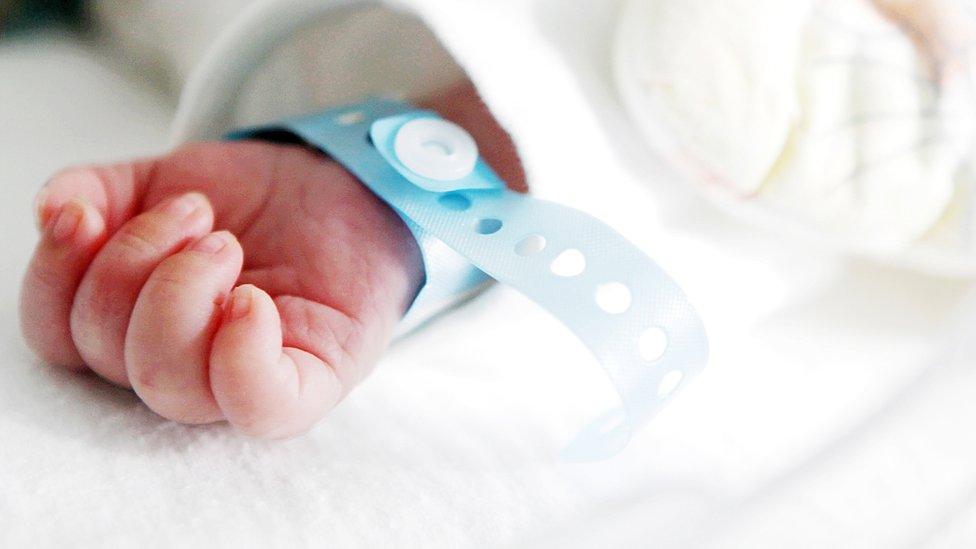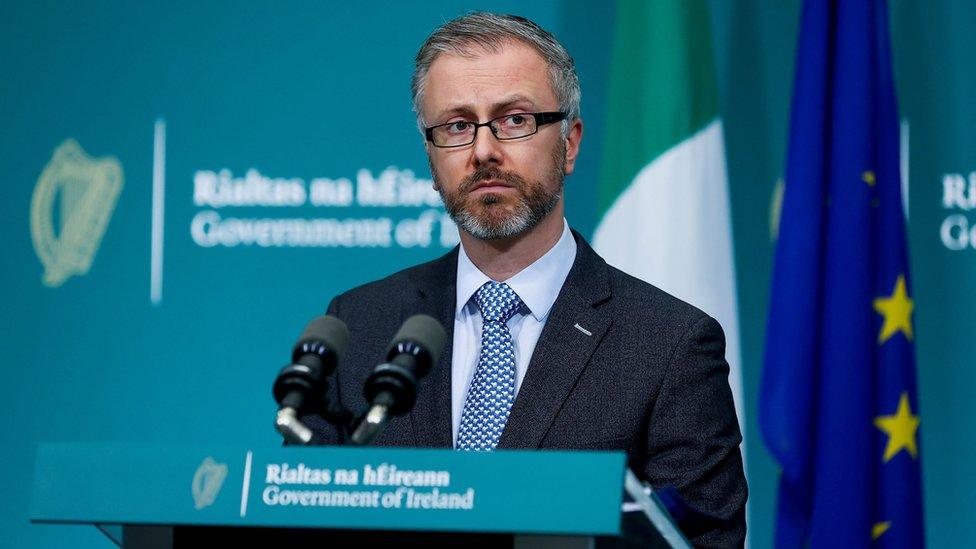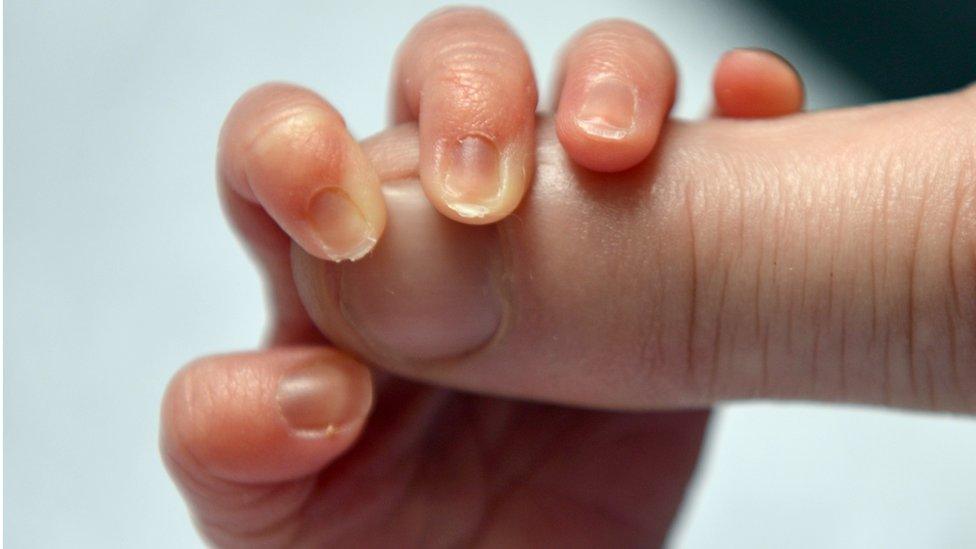Irish adoptees to get right of access to birth certificates
- Published

Currently, adopted people in Ireland can be prevented from accessing their birth identity
Adopted people in the Republic of Ireland are set to get an automatic right under a new law to see their birth certificates for the first time.
Currently, adoptees must apply to the authorities to find out their identity at birth, but their parents can object and block the release of information.
But now "landmark legislation" has been published which would allow the "full and unredacted release" of birth information to adoptees aged over 16.
It also includes a new tracing service.
The provisions of the Birth Information and Tracing Bill were published by Minister for Children Roderic O'Gorman on Wednesday.
"For decades in this country, adopted people have been failed in being denied clear access to their identity information," the minister said.
"With this bill, we are restoring to adopted people the information that so many of us take for granted as part of our own, personal stories."
Mr O'Gorman added that the new law, when passed, would end the Republic's "outlier status" in terms of legislation governing personal access to birth information.

Minister for Children Roderic O'Gorman said he was "committed" to advancing the law this year
At present, adoptees can access "non-identifying" details about their parents such as their eye colour, but identifying information like names and addresses cannot be released without parents' consent.
What is included in the new law?
The new legislation would give adoptees access to their name at birth, medical information and details about how they spent their early lives.
Access to early life information would also include the release of baptismal certificates and entries on the baptismal register, which can be an important factor in family tracing.
The bill also seeks to establish a "contact preference register" in law which would allow adopted people and their families to record their personal wishes regarding whether or not they want to be contacted by family members from whom they were separated through the adoption process.
The legislation would also give adoptees the right to live under whichever identity they prefer, using either their adopted name or the name they were given at birth.
It would set up a "statutory tracing service" for people who want to make contact with families from whom they were separated at birth.
The new rights regarding access to birth information would apply to people who were legally adopted; those whose births were registered illegally under the name of their adopted family and people who were "boarded out" - who were sent to foster homes but never formally adopted.
The bill would also grant the next-of-kin of a person affected by adoption or illegal birth registration access to their relative's birth information in certain circumstances, including cases where a child died in certain residential institutions.
Why is the law changing?
Adoption rights campaigners have argued for decades that adoptees and their families have been discriminated against as a result of being denied access to their biological identity.
Campaigners say that adoptees living with genetic diseases and inherited medical conditions have been disadvantaged in the healthcare system because of their lack of background information.
The issues of adoption tracing and family separation also received much public attention in recent years following a major investigation into Ireland's mother-and-baby homes.
Although survivors of mother-and-baby homes were bitterly disappointed with the findings of last year's report, many came forward to share their own experiences of continued enforced separation from their parents, children and siblings.
Mother-and-baby homes operated in an era when pregnancy outside marriage was a significant social taboo in Ireland and some women who gave birth in the homes never told family members.
The new law will remove parents' ability to prevent their adopted children from discovering their identity, but the contact preference register will allow those who do not want to be contacted to formally express that wish.
Following lobbying from adoption rights campaigners, the bill no longer contains a requirement for adoptees seeking information to attend a meeting in person with a social worker in cases where their parent has expressed a "no contact" preference.
The Department for Children said the revised bill "makes provision for this to take place by means of a short phone call or video call if desired".
Campaigners had objected to the information sessions because other Irish citizens are not required to consult social workers in order to access their personal information.
Related topics
- Published11 March 2021
